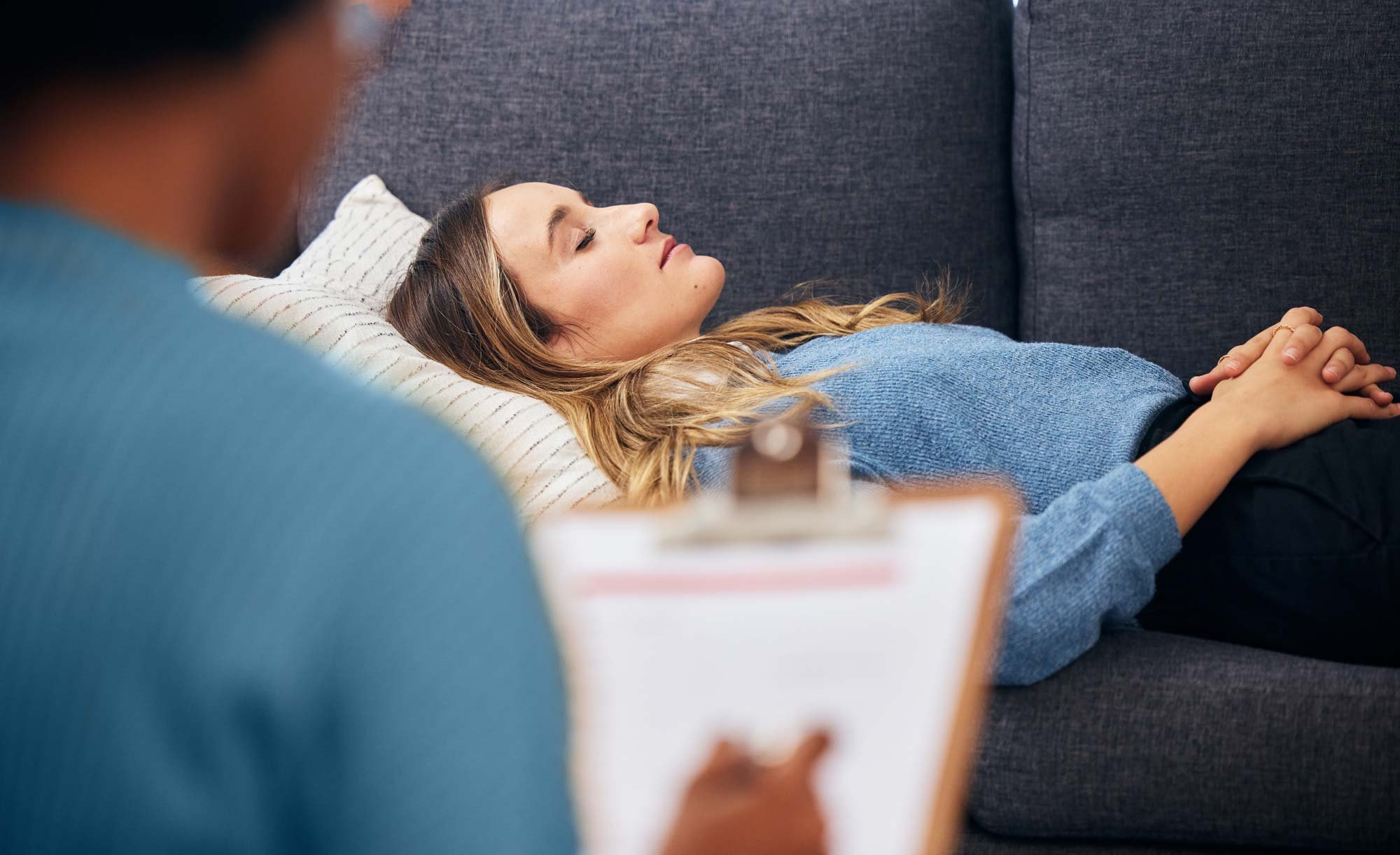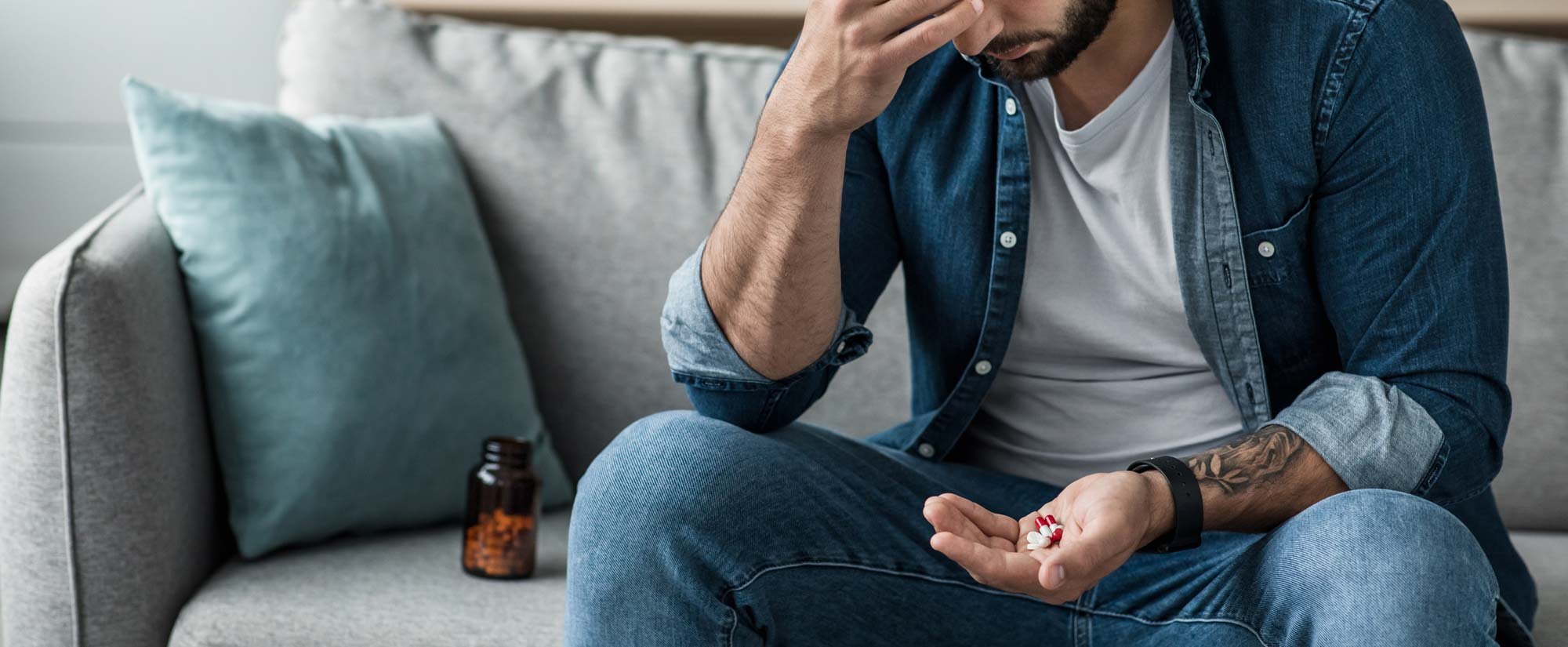
Anxiety Therapy & Treatment — California Online Counseling
Anxiety can be overwhelming, affecting various aspects of life. But there is hope. Therapy offers a range of effective approaches to help individuals navigate their anxiety and regain control. From talk therapy to exposure therapy, each method is tailored to address specific needs.
THERAPY FOR ANXIETY
PHW is ready to help you take your life back
In therapy sessions, a trained therapist provides guidance and support in understanding the root causes of anxiety. Psychodynamic therapy explores underlying patterns and beliefs, while cognitive-behavioral techniques focus on challenging negative thought patterns. Relaxation techniques and systematic desensitization help individuals manage panic disorder and phobias by gradually exposing them to their fears.
With a commitment to therapy, individuals can learn coping strategies that empower them to confront anxiety head-on. So if you're seeking relief from anxiety, consider exploring the world of therapy and take the first step towards regaining peace of mind.
Types of therapy for anxiety disorders
-
Cognitive Behavioral Therapy, or CBT, is a widely used therapy for anxiety disorders. It focuses on identifying and changing negative thought patterns and behaviors that contribute to anxiety. With the help of a therapist, individuals learn new coping strategies and develop healthier ways of thinking about their fears and anxieties.
-
Exposure therapy is specifically designed to treat specific phobias and other anxiety disorders. It involves gradually exposing individuals to the feared object or situation in a controlled environment. By facing their fears in a safe setting, individuals can learn to gain control over their anxieties, thereby allowing them to cope with their anxiety effectively.
-
Acceptance and Commitment Therapy, or ACT, aims to help individuals accept their anxious thoughts and feelings rather than trying to suppress or control them. Through mindfulness techniques, individuals learn to observe their thoughts without judgment and develop strategies for living a value-driven life despite experiencing anxiety.
-
Mindfulness and meditation are practices that can help individuals become more aware of their thoughts and feelings. By practicing mindfulness, people can learn to observe their thoughts without judgment and develop skills to manage their anxiety effectively.
-
Brainspotting is a relatively new type of therapy designed to help individuals access, process, and overcome trauma, emotional distress, and somatic symptoms.
Developed by Dr. David Grand, it is based on the idea that the position of your eyes can affect the way you feel and process emotional experiences.
During a brainspotting session, therapists help clients find specific eye positions, known as "brainspots," that are linked to hidden trauma in the subcortical brain. By maintaining focus on these spots and using bilateral sound, brainspotting enables deep processing and integration of emotional and bodily experiences. This therapy is praised for its ability to tap into the body’s natural self-healing capacities, offering a path to recovery and emotional well-being for a wide range of psychological issues.
Effectiveness of different therapy options
Therapies for anxiety: Finding the right treatment
There are various therapeutic approaches available to address anxiety disorders. Each treatment option has its own effectiveness in managing symptoms and promoting overall well-being.
-

Cognitive Behavioral Therapy (CBT)
CBT is a widely recognized and effective treatment for anxiety. It focuses on identifying and changing negative thought patterns and behaviors that contribute to anxiety symptoms.
READ MORE
CBT equips individuals with coping skills to manage anxious thoughts, confront fears, and develop healthier thinking patterns.
Pros of CBT:
Provides practical strategies to challenge anxious thoughts
Teaches individuals how to change unhelpful behaviors
Can be short-term or long-term depending on individual needs
Cons of CBT:
May require consistent effort and practice outside therapy sessions
Not suitable for everyone, as some individuals may prefer alternative approaches
-

Medication-Assisted Therapy
In some cases, medication may be prescribed alongside therapy to manage anxiety symptoms effectively.
*Please note that we do not prescribe
-

Brainspotting
Brainspotting is a relatively new type of therapy designed to help individuals access, process, and overcome trauma, emotional distress, and somatic symptoms.
READ MORE
Developed by Dr. David Grand, it is based on the idea that the position of your eyes can affect the way you feel and process emotional experiences. During a brainspotting session, therapists help clients find specific eye positions, known as "brainspots," that are linked to hidden trauma in the subcortical brain. By maintaining focus on these spots and using bilateral sound, brainspotting enables deep processing and integration of emotional and bodily experiences. This therapy is praised for its ability to tap into the body’s natural self-healing capacities, offering a path to recovery and emotional well-being for a wide range of psychological issues.
Our anxiety therapy services
If you're struggling with anxiety, our therapy services can provide the support and treatment you need. Our team of mental health professionals specializes in helping individuals manage and overcome anxiety disorders.
-
Anxiety is a common mental health condition that can manifest in various ways. It often involves feeling excessive worry or fear that interferes with daily life. Some common signs and symptoms of anxiety include:
Persistent feelings of unease or nervousness
Racing thoughts or difficulty concentrating
Physical symptoms like rapid heartbeat, sweating, or trembling
Avoidance of certain situations or activities due to fear
Sleep disturbances, such as insomnia or restless sleep
-
At our therapy center, we understand that each individual's experience with anxiety is unique. That's why we take a personalized approach to develop treatment plans tailored to your specific needs. Our goal is to help you gain control over your anxious feelings and improve your overall well-being.
-
Our therapists utilize evidence-based therapies that have been shown to effectively treat anxiety disorders. These treatments may include:
Cognitive-Behavioral Therapy (CBT): Helps identify and modify negative thought patterns and behaviors associated with anxiety.
Exposure Therapy: Gradually exposes individuals to feared situations in a controlled manner to reduce anxiety responses.
Mindfulness-Based Stress Reduction (MBSR): Teaches techniques for managing stress and increasing present-moment awareness.
-
We strive to create a supportive environment where you feel heard, understood, and validated. Our therapists are trained to provide empathy, compassion, and guidance throughout your therapeutic journey. We believe that building a strong therapeutic relationship is essential for effective treatment outcomes.
Selecting the best therapy for treating anxiety
-
There are several therapy options available. The most common types include:
Cognitive-Behavioral Therapy (CBT): This type of therapy focuses on identifying and changing negative thought patterns and behaviors that contribute to anxiety. It helps individuals develop coping strategies and learn new ways to manage their anxiety.
Exposure Therapy: This therapy involves gradually exposing individuals to situations or objects that trigger their anxiety. By facing their fears in a controlled environment, individuals can learn to manage their anxiety responses and reduce fear.
Acceptance and Commitment Therapy (ACT): ACT aims to help individuals accept their anxious thoughts and feelings without trying to control or eliminate them. It encourages them to focus on what they value in life and take actions aligned with those values.
Dialectical Behavior Therapy (DBT): DBT combines elements of CBT with mindfulness techniques. It helps individuals regulate emotions, improve interpersonal skills, and cope with distressing situations.
-
When selecting the best therapy for treating anxiety, it's important to consider the following factors:
Severity of Anxiety: The intensity and impact of anxiety symptoms can vary from person to person. Some therapies may be more suitable for mild or moderate anxiety, while others may be better suited for severe cases.
Personal Preferences: Everyone has different preferences. Some individuals may prefer a structured approach like CBT, while others may resonate more with mindfulness-based therapies like ACT or DBT.
Treatment Goals: Clarifying your treatment goals is crucial before selecting a therapy option. Do you want immediate symptom relief or long-term strategies for managing anxiety? Discussing these goals with a mental health professional can help guide your decision-making process.
Availability and Accessibility: Explore our diverse team of 9 providers, each specializing in a wide range of therapies. With in-network coverage accepted by over 60 insurance providers, we aim to make therapy accessible and tailored to your needs.
Exploring Cognitive Behavioral Therapy (CBT) for anxiety
Cognitive Behavioral Therapy, commonly known as CBT, is a type of therapy used to treat anxiety. It focuses on the connection between our thoughts, feelings, and behaviors. During CBT sessions, therapists work with individuals to identify and challenge negative thought patterns that contribute to anxiety.
-
In addition to CBT, there are other behavior therapies that can be effective in managing anxiety. Dialectical Behavioral Therapy (DBT) combines elements of CBT with mindfulness and meditation techniques. DBT is often used for individuals with borderline personality disorder or those struggling with emotional regulation.
-
Mindfulness and meditation are practices that can help individuals become more aware of their thoughts and feelings. By practicing mindfulness, people can learn to observe their thoughts without judgment and develop skills to manage their anxiety effectively.
-
One key aspect of CBT is challenging negative thoughts. This involves identifying unrealistic or unhelpful thoughts related to anxiety and replacing them with more realistic ones. By changing thought patterns, individuals can reduce anxiety levels.
The importance of therapy in managing anxiety
Anxiety is a common mental health condition that can cause severe distress and interfere with daily life. While experiencing occasional stress is normal, chronic or severe anxiety requires proper management to promote emotional regulation and overall well-being. One effective approach for managing anxiety is therapy.
-
Emotional Support: Therapy provides a safe space where individuals can express their feelings and concerns without judgment. A therapist can offer guidance, empathy, and validation, helping individuals navigate their emotions effectively.
Coping Strategies: Therapy equips individuals with practical tools and coping strategies to manage anxiety symptoms. These strategies may include deep breathing exercises, mindfulness techniques, or cognitive restructuring to challenge negative thought patterns.
Identifying Triggers: Through therapy, individuals can identify the specific triggers that contribute to their anxiety. By understanding these triggers, they can develop personalized strategies to minimize their impact on daily life.
Building Resilience: Therapy helps individuals build resilience by developing healthy coping mechanisms and enhancing problem-solving skills. This empowers them to face challenges with greater confidence and adaptability.
Improved Relationships: Anxiety can strain relationships with family members, friends, or colleagues. Therapy offers an opportunity to explore these dynamics and develop healthier communication styles, leading to improved relationships and reduced interpersonal stress.
-
There are various therapeutic approaches available for managing anxiety:
Cognitive Behavioral Therapy (CBT): CBT focuses on identifying and challenging negative thought patterns that contribute to anxiety.
Mindfulness-Based Stress Reduction (MBSR): MBSR incorporates mindfulness practices to enhance self-awareness and reduce stress.
Dialectical Behavior Therapy (DBT): DBT combines elements of CBT with skills training in emotional regulation and distress tolerance.
Exposure Therapy: This approach gradually exposes individuals to anxiety-inducing situations to reduce fear and avoidance.
Schedule with us
Anxiety is a common mental health condition that can cause severe distress and interfere with daily life. While experiencing occasional stress is normal, chronic or severe anxiety requires proper management to promote emotional regulation and overall well-being. One effective approach for managing anxiety is therapy.
Frequently asked questions
-
Online therapy has been found to be just as effective as in-person therapy for many mental health concerns, including anxiety disorders. Numerous studies have shown positive outcomes for individuals receiving online treatment. However, effectiveness may vary depending on individual circumstances and the specific type of therapy being used.
-
Rest assured, we accept all major insurance plans for our online therapy services. Skip the hassle of calling your insurance company – simply reach out to us directly. Our dedicated team will handle the details, allowing you to focus on your mental health journey with ease.
-
If your anxiety symptoms significantly interfere with your daily life or cause distress that affects your relationships or work performance, it may be beneficial to seek professional help through therapy. A qualified therapist can assess your symptoms and provide appropriate guidance and support.
-
The duration of anxiety therapy varies depending on several factors, including the severity of your anxiety, your treatment goals, and how you respond to therapy. Some individuals may experience relief in a few months, while others may require longer-term treatment. Your therapist can give you a better estimate based on your specific situation.
-
Therapy can be an effective standalone treatment for anxiety disorders. However, in some cases, a combination of therapy and medication may be recommended for optimal results. It is important to consult with a mental health professional who can evaluate your needs and develop an appropriate treatment plan.
Explore our other services
-

Trauma
Trauma comes in many forms. While sometimes it arises from a life threatening event, it can often arise from many situations, all of which made an impact upon us.
-

Substance Abuse
Our counselor has been specifically trained in Substance use issues, and have an understanding of the psychological, emotional and physical concerns which may manifest.
-

Depression
Depression is not a one-size-fits-all ailment. Even though it might seem unbearable now, our therapists are confident we can help.
-

Family Therapy
At Parish Health and Wellness our counselors and therapists often work with family members as they shift through these changing dynamics.
-

Anger Management
Here, we address one of the most popular misconceptions on how to handle anger, and give some guidance on other methods for dealing with anger.
-

Life Transition Therapy
At PHW we focus on helping people process the changes that occur in their lives, and focus on how navigating these changes can affect our emotional well-being.


